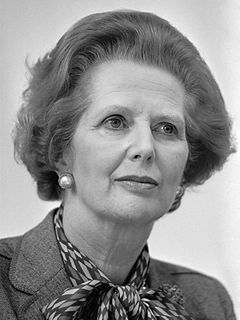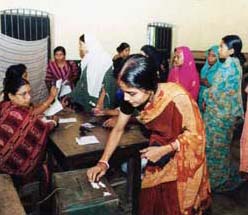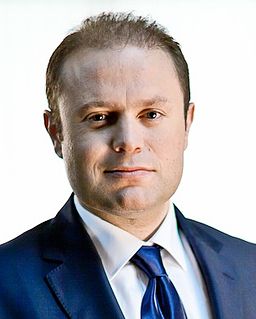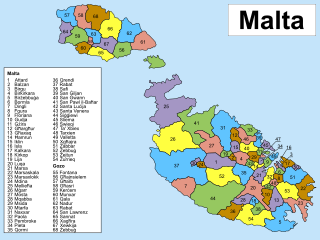
The politics of Malta takes place within a framework of a parliamentary representative democratic republic, whereby the President of Malta is the constitutional head of state. Executive Authority is vested in the President of Malta with the general direction and control of the Government of Malta remaining with the Prime Minister of Malta who is the head of government and the cabinet. Legislative power is vested in the Parliament of Malta which consists of the President of Malta and the unicameral House of Representatives of Malta with the Speaker presiding officer of the legislative body. Judicial power remains with the Chief Justice and the Judiciary of Malta. Since Independence, the party electoral system has been dominated by the Christian democratic Nationalist Party and the social democratic Labour Party.

The European Assembly Election, 1979, was the first European election to be held in the United Kingdom after the European Communities (EC) decided to directly elect representatives to the European Parliament. It was held on 7 June. Elections were also held in eight other EC states. European elections were incorporated into UK law by the European Assembly Elections Act 1978. Out of the 410 members of the European Parliament, 81 were elected from the UK. The electoral system was First Past the Post in England, Scotland and Wales and Single Transferable Vote in Northern Ireland.
Regular elections in Croatia are mandated by the Constitution and legislation enacted by Parliament. The presidency, Parliament, county prefects and assemblies, city and town mayors, and city and municipal councils are all elective offices. Since 1990, five presidential elections have been held. During the same period, nine parliamentary elections were also held. In addition, there were six nationwide local elections. Croatia has held two elections to elect 11 members of the European Parliament following its accession to the EU on 1 July 2013.

Elections in Ukraine are held to choose the President, Verkhovna Rada, and local governments. Referendums may be held on special occasions. Ukraine has a multi-party system, with numerous parties in which often not a single party has a chance of gaining power alone, and parties must work with each other to form coalition governments.

Elections in Bangladesh gives information on election and election results in Bangladesh.

Elections in Lithuania gives information on elections and election results in Lithuania.

Malta elects on a national level 6 MEPs representing Malta in the European Parliament, on a district level the legislature, On a local level the Local Councils and on a community level the Administrative Committees.

The 2005 United Kingdom general election was held on Thursday 5 May 2005, to elect 646 members to the House of Commons. The Labour Party led by Tony Blair won its third consecutive victory, with Blair becoming the only Labour leader beside Harold Wilson to form three majority governments. However, its majority now stood at 66 seats compared to the 160-seat majority it had previously held. As of 2019, it remains the last general election victory for the Labour Party.
The Eighth National Parliamentary Elections 2001 were held in Bangladesh on 1 October 2001. 300 single-seat constituencies for the Jatiya Sangsad were contested by 1,935 candidates representing 54 parties and including 484 independents. The election was the second to be held under the caretaker government concept, introduced in 1996. The chief adviser of the caretaker government was Justice Latifur Rahman. The result was a win for the Bangladesh Nationalist Party with its leader Khaleda Zia becoming Prime Minister.

The 2008 New Zealand general election was held on 8 November 2008 to determine the composition of the 49th New Zealand parliament. The conservative National Party, headed by its parliamentary leader John Key, won the largest share of votes and seats, ending nine years of government by the social-democratic Labour Party, led by Helen Clark. Key announced a week later that he would lead a National minority government with confidence-and-supply support from the ACT, United Future and Māori parties. The Governor-General swore Key in as New Zealand's 38th Prime Minister on 19 November 2008. This marked an end to nine years of Labour Party government, and the beginning of the Fifth National Government of New Zealand which would govern for 9 years, until its loss to the Labour Party in the 2017 general election.

The European Parliament election was the United Kingdom's component of the 2009 European Parliament election, the voting for which was held on Thursday 4 June 2009. The election was held concurrently with the 2009 local elections in England. In total, 72 Members of the European Parliament were elected from the United Kingdom using proportional representation.

The Fifth National Parliamentary Elections 1991 were held in Bangladesh on 27 February 1991. The result was a victory for the Bangladesh Nationalist Party, which won 140 of the 300 seats. Voter turnout was 55.4%. As a result, BNP leader Khaleda Zia was sworn in as Prime Minister on 20 March.
The Sixth National Parliamentary Elections 1996 was held in Bangladesh on 15 February 1996. They were boycotted by most opposition parties, and saw voter turnout drop to just 21%. The result was a victory for the Bangladesh Nationalist Party (BNP), which won 300 of the 300 elected seats. This administration was short lived however, only lasting 12 days before the installation of caretaker government and fresh elections held in June.

Local elections were held in Malta on 8 March 2008, the same day of the general election. This year, the election was held in 23 of the 68 Maltese localities. These 23 localities are: Valletta, Senglea, Żebbuġ, Żejtun, Balzan, Dingli, Fontana, Għajnsielem, Għasri, Iklin, Kirkop, Marsa, Mellieħa, Mqabba, Nadur, Pembroke, Qrendi, San Ġiljan, San Pawl il-Baħar, Santa Venera, Ta' Xbiex, Xewkija and Żurrieq. A separate local election was held on 24 May in Mtarfa, after the previous council was dissolved a monthly earlier. 12 candidates contested the election, in which 3 councillors were elected for the Nationalist Party while 2 councillors were elected for the Malta Labour Party (MLP).

A referendum on European Union membership was held in Malta on 8 March 2003. A narrow majority voted in favour of joining but the opposition Labour Party rejected the results. The victory of the Nationalist Party in the 2003 general election confirmed the result of the referendum and Malta joined the EU on 1 May 2004.

General elections were held in Malta on Saturday, 9 March 2013. The Labour Party won a majority of seats thus defeating the Nationalist Party, which had been in power since 1987, save a short period of less than two years between 1996 and 1998 when Labour was in government.

General elections were held in Jamaica on 25 February 2016. The elections were largely a contest between the governing People's National Party (PNP) and the opposition Jamaica Labour Party (JLP). The result was a narrow victory for the JLP, which won 32 of the 63 seats. One political commentator described the poll as "the closest election Jamaica has ever had".

The European Parliament election of 2014 in Malta elected Malta's delegation to the European Parliament from 2014 to 2019. This was the third such election held in Malta. The elections were held on Saturday, 24 May 2014.

















